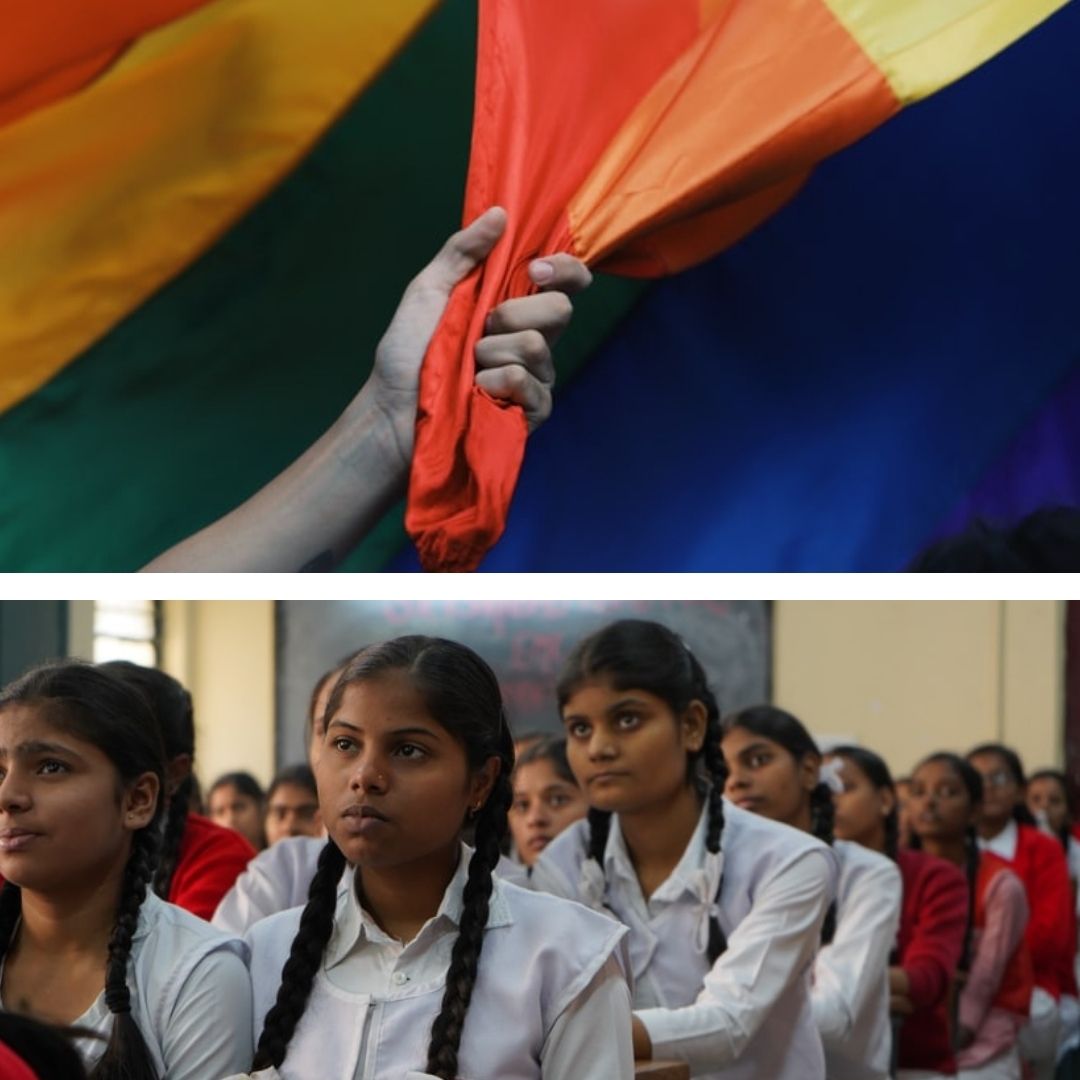How School Curriculum Can Help In Uprooting Stigmas Associated With LGBTQ Community?
India, 29 Dec 2021 3:47 AM GMT
Editor : Palak Agrawal |
Palak a journalism graduate believes in simplifying the complicated and writing about the extraordinary lives of ordinary people. She calls herself a " hodophile" or in layman words- a person who loves to travel.
Creatives : Tashafi Nazir
For most people, journalism sounds hectic and chaotic. For her, it's a passion she has been chasing for years. With an extensive media background, Tashafi believes in putting efforts on presenting a simple incident in the most interesting way.
School is an agency that inculcates values, preliminary knowledge and ideas within a child’s mind. Therefore, it has a significant role in structuring a person's mindset, and reconstructing the primary knowledge generation hub can help reform an individual’s perspectives and insights.
Schools can be equated as miniature societies, where children from different cultural and societal backgrounds meet and form an association. A school is a place where individuals primarily establish themselves as a part of a larger community, comprising several other persons unrelated to them. This idea of identifying oneself as different from another must be carefully scrutinised and the parameters of drawing out such differences should be modified, especially in terms of gender and sexual orientations.
After family, school is an agency that inculcates values, preliminary knowledge, and ideas within a child's mind. Therefore, it has a significant role in structuring a person's mindset, and reconstructing the primary knowledge generation hub can help reform an individual's perspectives and insights.
According to a research forum, most of the young kids from school in present times are well equipped with the terms 'transgender', 'gay', 'lesbian', essentially because issues concerning these communities are widely propagated or projected through movies, songs, storybooks, social media or other popular platforms. Due to this, the stereotypical action of keeping them away from such terms or concepts seems absurd.
The researchers opine that useful information must be catered to within them so that they do not remain uninformed or misinformed. Kevin Jennings, a famous American educator, points out that most of the school history books do not include the historical struggles of LGBTQ+ people. Hence, the history taught to students is half-truths. He suggests that the social studies curriculum must take in such concerns as students in the current time are invariably associated with gender issues and terms related to sexualities and sexual identities. He also advocates for the inculcation of research-oriented skills in classroom teaching, as this type of learning might help the students develop their critical thinking, analysing, and reasoning capacities.
Many times, it is observed that students often use "gay", "lesbian" as terms to mock others. Sadly, the experts say, teachers seem to be ignorant regarding these sensitive issues and such ignorance gives the kid an impression that such actions are not offensive.
Need For Gender Sensitisation
Another educator, Kevin C. Franck said that schools must organise monthly or yearly gender sensitisation workshops for both staffers and students. In some instances, the parents of the students should also be invited to such seminars. Moreover, teachers must eliminate improper stigmatisations associated with sexual identities and should stop encouraging any shyness or hesitation while discussing anything analogous to LGBTQ.
Despite pretending not to notice anti-gay hate slurs used by students, they should actively address such issues, counsel them and make them understand why using such foul language is offensive. This helps in gaining confidence to students who bear homosexual identities or other sexual orientation to come out and believe they are not "different" or "weird" or their choices are not "unnatural".
Gender Inclusion In Curriculum
The experts say that there are great elementary storybooks for children whose lead protagonists are LGBTQ characters; the elementary school curriculum can include them. More LGBTQ teachers must be recruited to share their life experiences with students and influence them to belong to such communities.
In civics, children should be taught about the rights of the LGBTQ+ community. In history, teachers should teach about how it is nothing against one's culture as mentioned in several ancient books.
There is also an equal need for strict adoption of policies that implement the same. In some developing countries, some laws make it compulsory for school management to seriously address school bullying and discrimination.
Earlier this year, the High Court of Madras officially suggested measures that include:
At schools, parents- teachers meetings should include sensitising and educating parents on the issues of the LGBTQIA+ community and gender nonconforming students to ensure supportive families for children.
Policies and resources should support students belonging to the LGBTQIA+ community in all spheres of their academic life. For this, educational spaces should include gender-neutral restrooms, change the name of gender on academic records for individuals and include 'transgender', appointing LGBTQIA+ inclusive, for the staff and students.
Also, appropriate government bodies shall take adequate steps to implement measures concerning transgender persons as stipulated by Chapter VI of The Transgender Persons (Protection of Rights) Act 2019 and Rule 10 of the Transgender Persons (Protection of Rights) Rules, 2020.
Also Read: This Petcare Startup Ensures Animals Are Treated No Less Than Humans
 All section
All section















